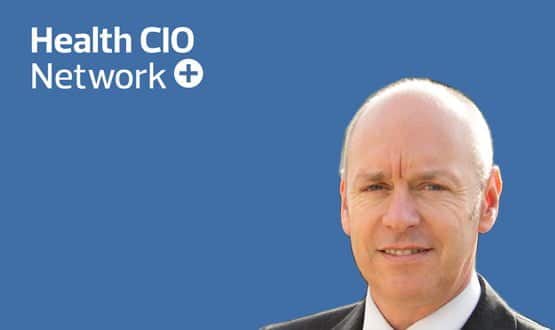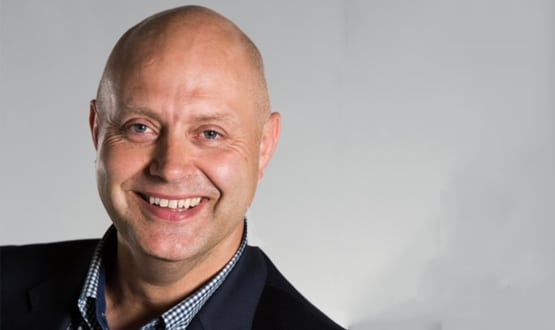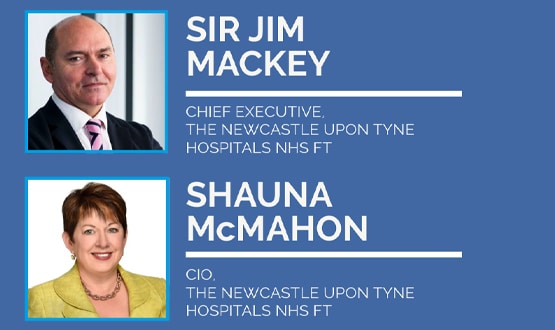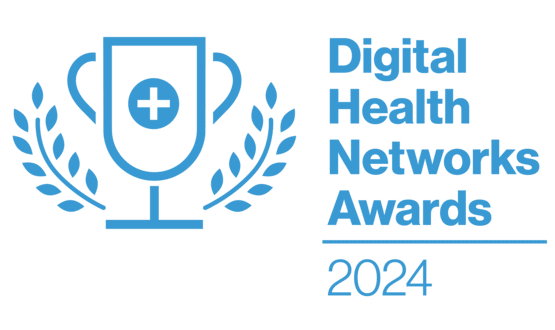The CIO Interview: Adrian Byrne, University Hospital Southampton
- 6 March 2017

Adrian Byrne, director of IM&T at University Hospital Southampton NHS Foundation Trust, talks to Digital Health News about staying the digital course and getting paid to drink.
Why did you become an NHS CIO?
I put one foot in front of the other really. Where I came from in labs, we were early users of large system databases in the NHS. There were no CIOs, so I certainly didn’t set out to be one. Most senior IT jobs would have been highly technical l guess, and it’s different now, with a much bigger emphasis on the business
Within your organisation, what is the most significant digital achievement of the past 12 months?
Hard to say as we have been through our busiest 12 months ever. We have all critical care beds using a single system/database platform and have linked all hospital vital signs into that. This will eventually be a single view across the whole hospital which is great for patient safety. We are really proud of the ground-breaking work we are doing with our My Medical Record personal health record system.
What will be the most significant of the next 12 months?
We plan to be live this year with an Electronic Document Management System (EDMS) that will see us eventually shutting down the records library and move towards a fully digital paperless record. Anyone who thinks an EDMS project is just a scanning project better think again. It is massively complex, if you do it right, and we think we are.
What’s the biggest barrier to being a more effective CIO?
Maintaining confidence in a strategy that can take much longer to deliver that people expect. Stopping short term dead end projects and keeping focus on more strategic goals. These things can destroy the effectiveness in many ways, but mostly by dividing and diluting scarce resource and thinking time.
What’s the biggest barrier the NHS faces overall in achieving digital transformation?
Willingness to stick at it for the long haul and accept that it’s all going to take a while. Some of the things we will need are not invented yet. Make small steps, take the benefits, re-assess the strategy and move on. Don’t get caught up in the IT industry hype.
If you have one piece of advice for other NHS CIOs, would it be?
Challenge everything.
Who in the NHS do you admire the most and why?
My CEO, because she is so logical and measured in everything, and she’s a snowboarder.
If you were given £30 million to spend on digital transformation within your trust, where would that money go?
I’d invest in taking forward an open data platform and look to build standards based information sharing, machine learning and full scalable digital patient experience. I would blueprint this for the NHS.
What is the most over-hyped digital innovation in health?
I’m a fan of open source but do feel it’s been over hyped.
What is the most under-rated digital innovation in health?
The patient.
And a few non-digital questions, what’s the worst job you’ve ever had and why?
I’ve never done anything that bad. I was once paid to drink beer. That was awful.
If you could invite three people, alive or dead, to dinner who would they be?
David Bowie, Tony Benn, Kate Bush.
What’s the background image on your home computer?
It changes but it’s either some guitar or guitar player, or some snowboarding exploits.
What’s your favourite piece of technology at home and why?
My Amazon Echo, because it shows me where tech is going.
If you could have any other job, what would it be?
I’d run some part of a music festival
In a film of your life, who would play you?
Johnny Depp, as a kind of pirate






1 Comments
Great stuff going on, but I would challenge what the biggest barrier facing the National Health Service is – Some of the stuff being done @ at University Hospital Southampton NHS FT (e.g. My Medical Record) should be being done @ the National level, there are 242 NHS Trusts. Question to NHS leaders: Surely, with regard to health, all people should be at the heart of what is going on, not just those that live in Southampton ? (No rush4answer … ‘appy to wait a while.)
Comments are closed.